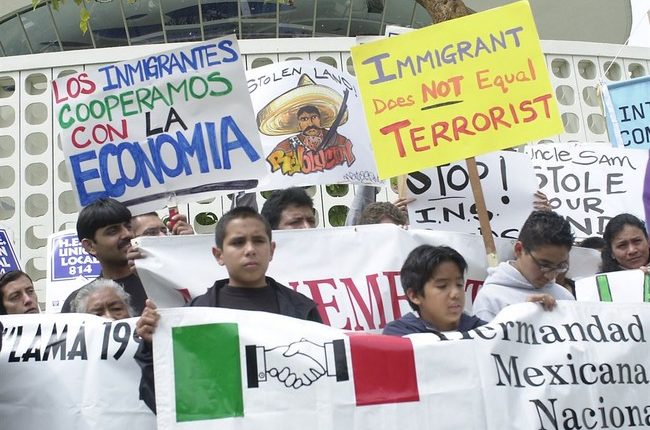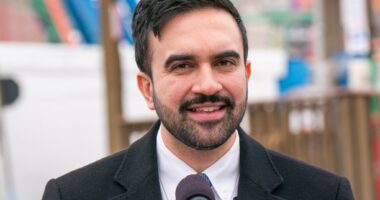Share this @internewscast.com

I once went on a water taxi adventure along New York City’s Hudson River. Our captain, an older gentleman, emphasized how the Big Apple had historically welcomed everyone willing to land at its shores, contrasting this with the current era’s need for border checks and travel documentation. However, I found it ironic that despite his criticism of entry regulations, I still had to buy a ticket to be on this boat. Although these historical perspectives on America’s early population growth have some validity, the context often gets misrepresented. In the early days, U.S. territories and states required a substantial influx of people to populate the land, develop cities, build the military, and form the nation. Times have certainly changed since then.
In past centuries, where did these new inhabitants originate? Mainly from Europe, which was the region of the first settlers. These newcomers from the mother continent shared common theological traditions and a united ambition to forge new lives in building a new nation. Although there were minor early attempts at socialism, like those at the Jamestown colony, the predominant belief was in working for personal gain, a belief held by the majority seeking new beginnings in the New World. However, immigration was not without regulations for long. By the end of the 18th Century, the 1790 Naturalization Act imposed limits on American citizenship. Over the following centuries, the country’s immigration policies have fluctuated between open and restrictive, influenced by national demands and security issues of various periods.
Lawmakers who imposed immigration limits aimed to maintain an American cultural continuity. Unfortunately, modern progressives label such intentions as xenophobic, often from the comfort of their culturally uniform areas like Georgetown or Martha’s Vineyard. Nowadays, the immigration debate has shifted its focus away from national interests and leans towards empathy for those fleeing unstable homelands they can’t or won’t help improve. This shift has resulted in many seeking solely the economic and security perks of Western civilization, while not necessarily contributing to it. This perspective introduced figures like Ilhan Omar, who has publicly prioritized Somalia’s interests as a U.S. congresswoman, and Zohran Mamdani, whose mother described him as “not an Uhmericcan (American) at all,” yet he’s the Democratic pick for NYC’s mayor.
Every time there’s a new war in southwest Asia, or Haiti, Americans are told it’s our duty of compassion to receive people by the tens of thousands, add them to our social benefits programs, and bear the inevitable result of being invaded by sizeable populations among us who have little interest in learning our language or appreciating our culture. The relationship progressives demand of us is very one-sided. This is a breach of trust for America’s citizenry, as those of us here legally are given no choice in the importation of new cultures at odds with our own. Nor are we given a vote when it comes to these new masses being immediately absorbed into taxpayer-funded services. The process is deliberately undemocratic.
But all of that’s beside the point of what I actually sat down to write about. I was astonished to read recently that Vermont’s Congresswoman Becca Balint said at a town hall that without further immigration from the 3rd world, “we’re not gonna have anyone around to wipe our a**es.” One might have thought that a leftist finally said the quiet part out loud. But they have been saying the quiet part out loud for years with arguments that America needs open borders because we need a class of people to pick tomatoes, clean hotel rooms, and shingle roofs. The implication is that these are menial, unworthy vocations that should be ascribed to those who open borders advocates seem to view as a servant class of humanity. In recent months, it occurred to me that similar arguments were made to justify the chattel slave trade during the first half of American history. Replace the word “tomatoes” with “cotton” and then ask if we’re really more enlightened than our 18th and 19th-century ancestors. There are many indicators—like the abortion trade, the butchering of children for the transgender agenda, and the human sex trafficking trade—that suggest the opposite is true.
RELATED: This Is What They Truly Think: Dem Rep’s Crude Comments About Immigration Get Backlash
The moral repugnance of the “Who will pick our tomatoes and wipe our backsides?” argument is mirrored by its basic falseness. As Ryan Girdusky noted recently at the Bob Dole Dinner in Kansas, other nations grow food and build structures without importing millions of people from South America. Just as the antebellum South built an economy around slavery, the America of my lifetime built an economy around a class of foreign labor that’s deliberately shuffled into the shadows. That’s the opposite of compassionate.
Our living generations are at a crossroads in America’s history. We inherited a nation of E Pluribus Unum—Out of Many, One. Will we steward that and hand it to our descendants? Or will we falter under the lie that justice demands a nation in which every culture is respected, except the one that birthed and sustained it? The choice is binary. We must reject thinking that reflects chattel-based moral commitments, and stand for an America-first immigration policy that perpetuates the unique greatness of this land to the ordered liberty benefit of all across the fruited plain.

















